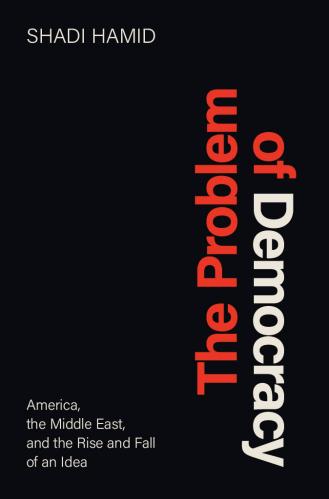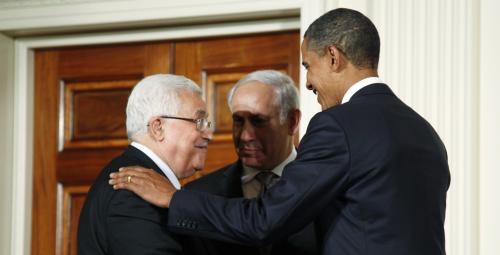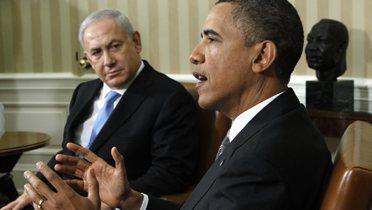For many long-time students and practitioners of the Israeli-American relationship, the U.S. abstention on UNSC resolution 2334—with its demand that Israel “immediately and completely cease all settlement activities in the occupied Palestinian territory”—did not come as a shock, writes Shalom Lipner. But it was neither sensible nor productive, he argues. This piece originally appeared on The American Interest.
You know those bets that you wish you had lost? Just a few weeks ago, popping canapés at the social function of mutual friends, a senior Israeli official and I together contemplated the twilight of the Obama administration. My interlocutor, a man who has logged innumerable face-time hours with Prime Minister Netanyahu, asserted confidently that there would be no concluding shot across Israel’s bow before Donald Trump was inaugurated. Respectfully disagreeing, I countered that the rancor of the past eight years would likely spark Team Obama, now freed of its electoral shackles, to somehow air its gut feelings on core disputes with Israel. Let’s just say that last weekend’s drama at the United Nations has given new credence to my children’s refrain that their father “may not be as stupid as he looks.”
For many long-time students and practitioners of the Israeli-American relationship, myself included, the U.S. abstention on UNSC resolution 2334—with its demand that Israel “immediately and completely cease all settlement activities in the occupied Palestinian territory”—did not come as a shock. This stands completely detached from my view on whether the move was sensible or productive; it was neither, but more on that later.
President Obama has never left any room for speculation about his attitude toward Israeli settlement in areas contested by the Palestinians: He sees them as the destructive linchpin of his peace efforts. A mere two days after being sworn-in, he personally joined Secretary of State Hillary Clinton at the State Department to announce the appointment of former senator George Mitchell as envoy to the region. No ambiguity here: This was same Mitchell whose 2001 Sharm El-Sheikh Fact-Finding Committee had called on the Israeli government to “freeze all settlement activity, including the ‘natural growth’ of existing settlements.”
Nor did the thrust of the Mitchell mission remain obscure. On Netanyahu’s first visit to the Obama White House, the president used a press availability to clarify his position that “settlements have to be stopped in order for us to move forward.” Nine days later, hosting her Egyptian counterpart, Clinton chimed in that “the President was very clear when Prime Minister Netanyahu was here. He wants to see a stop to settlements—not some settlements, not outposts, not natural growth exceptions.” And when Israel sought to enforce the more flexible accommodations reached with the previous Bush administration, Clinton retorted that there existed “no memorialization of any informal and oral agreements. If they did occur, which, of course, people say they did, they did not become part of the official position of the United States Government.”
Capping this onslaught on the settlement enterprise, Obama took to a podium at Cairo University on June 4, 2009, to declare that “the United States does not accept the legitimacy of continued Israeli settlements.” Where preceding administrations had contented themselves with characterizations of settlement construction as a proverbial “obstacle to peace,” Obama’s rhetorical upgrade struck at (and questioned) the very legality of Israel’s policy.
The Netanyahu government has responded plausibly that not only is it absurd to deny Jewish communal life in the crucible of Jewish civilization, but also that multiple governments in Jerusalem have uprooted settlements in order to advance reasonable chances for peace. As such, it rejects all arguments that settlement activity—considered a final status issue to be negotiated with the Palestinians—serves to negate the possibility of an eventual two-state solution. That said, it is simply axiomatic that the United States has never been enamored of settlement construction.
And thus, with the end of his tenure in the headlights, President Obama could hardly resist letting UNSC 2334 pass. In fact, it might have been more surprising if, at this point in his presidency—in the shadow of a potential Trump reversal of his legacy—Obama had stood in opposition to a resolution so reflective of his own personal belief system. Surely, he must have reasoned, halting settlement expansion, while also condemning “all acts of violence against civilians, including acts of terror, as well as all acts of provocation, incitement and destruction,” reiterating a “vision of a region where two democratic States, Israel and Palestine, live side by side in peace within secure and recognized borders,” and creating “conditions for successful final status negotiations and for advancing the two-State solution,” promises the best of all worlds.
[T]his was the ultimate twofer for Obama: he simultaneously voted his conscience and whacked his Israeli nemesis.
Better yet, this was the ultimate twofer for Obama: he simultaneously voted his conscience and whacked his Israeli nemesis. Favorably disposed to collective international action and viscerally agitated at the prospect of exercising a U.S. veto at the Security Council—done only once (despondently, and on Israel’s behalf) during his eight years in office—this was an opportunity tailored precisely to his size. If Netanyahu could rally the U.S. Congress behind his Iran objectives, then Obama would raise the ante on the global stage, at once promoting his Middle East agenda and putting Netanyahu in his place. From Israel’s vantage point, of course, it was a cheap shot that now exposes to the Jewish state to censure and sanction.
Since we’ve all been down this road before, one would have hoped that smart people would learn from history. Instant gratification is nice, but back in the real world, UNSC 2334 was a poorly conceived misfire. Assuming charitably that those who supported the resolution were concerned only with the cause of peace between Israel and the Palestinians, this feel-good boomerang will likely accomplish the diametric opposite: forcing the former into a defensive crouch and emboldening the latter in their continual efforts to avoid direct negotiation by subcontracting their grievances to the international community. Reactions of the parties to the vote have proven this to be true.
Compounding the problem, instead of providing a foundation for a peace process, the decision actually reinforces these dismal trends through its crude attention to the particulars. Lacking critical texture, the resolution paints the entire parcel in question with the same brush, effectively equating the most isolated of Israeli settlements—which Israel would surely dismantle in the event of a bona fide peace agreement—with the Western Wall, which no sane person honestly expects Israel to relinquish. And without the United States insisting that these nuances be appreciated, the Israeli government will doubtless be supremely unforthcoming, as it awaits the advent of a Trump presidency with a contrary perspective on settlements.
In retrospect, things could (and should) have been done differently. Going full-throttle with an early and unnegotiable demand for a full settlement freeze, Obama forced a confrontation with Netanyahu and eliminated the chance of a cooperative venture between them. It also spoke to an intense Obama obsession that struck narrowly at Israel’s sensitive underbelly. Exigencies of Israeli politics notwithstanding, Netanyahu—who did initiate a ten-month moratorium on settlement activity in 2009—had every interest in developing a working relationship with the United States and would have ostensibly preferred to agree on coordinated parameters for addressing American concerns. But ultimatums for a complete halt pushed him into an untenable corner and toward the path of resistance.
Netanyahu’s glacier pace, appropriate to the ever-present threats to Israel’s security but ill-attuned to Obama’s bold diplomatic program, also contributed to the tensions. Delivering his landmark address at Bar-Ilan University—where he presented a horizon for a two-state solution—only after Obama had already challenged him on settlements, Netanyahu foreclosed an opportunity to get ahead of the curve and establish good will with the Obama administration. This pattern continued later and, albeit grounded in substantive policy gaps, quickly deteriorated into the exchange of personal insults that soured bilateral relations to the point of clouding achievements such as the $38 billion Memorandum of Understanding on Security Assistance.
Both Obama and Netanyahu are adults. They are entitled to their own opinions and responsible for the consequences of their actions. So it’s entirely fair game for Netanyahu to charge that the administration “not only failed to protect Israel against this gang-up at the UN, it colluded with it behind the scenes.” It’s also fair for U.S. Jewish groups to rail against the vote as “a betrayal of the fundamentals of the special relationship”—and for the White House to claim it was “compelled to [abstain]…because of the choices that were made over years by the Israeli government in building settlements.”
The president and the prime minister hold the keys to an important alliance that has taken much punishment, and their animus has become an impediment to its advancement. As the Obama administration finishes out its term and weighs further moves in the Israeli-Palestinian theater—now including today’s address by Secretary of State Kerry—it would be unwise to let frustration or utopian impulses get the better of statecraft. Everyone knows which is the road paved with good intentions. The road to peace, on the other hand, meanders only through constructive and collaborative progress.










Commentary
U.S. abstention on Israeli settlements resolution: Neither sensible nor productive
January 3, 2017